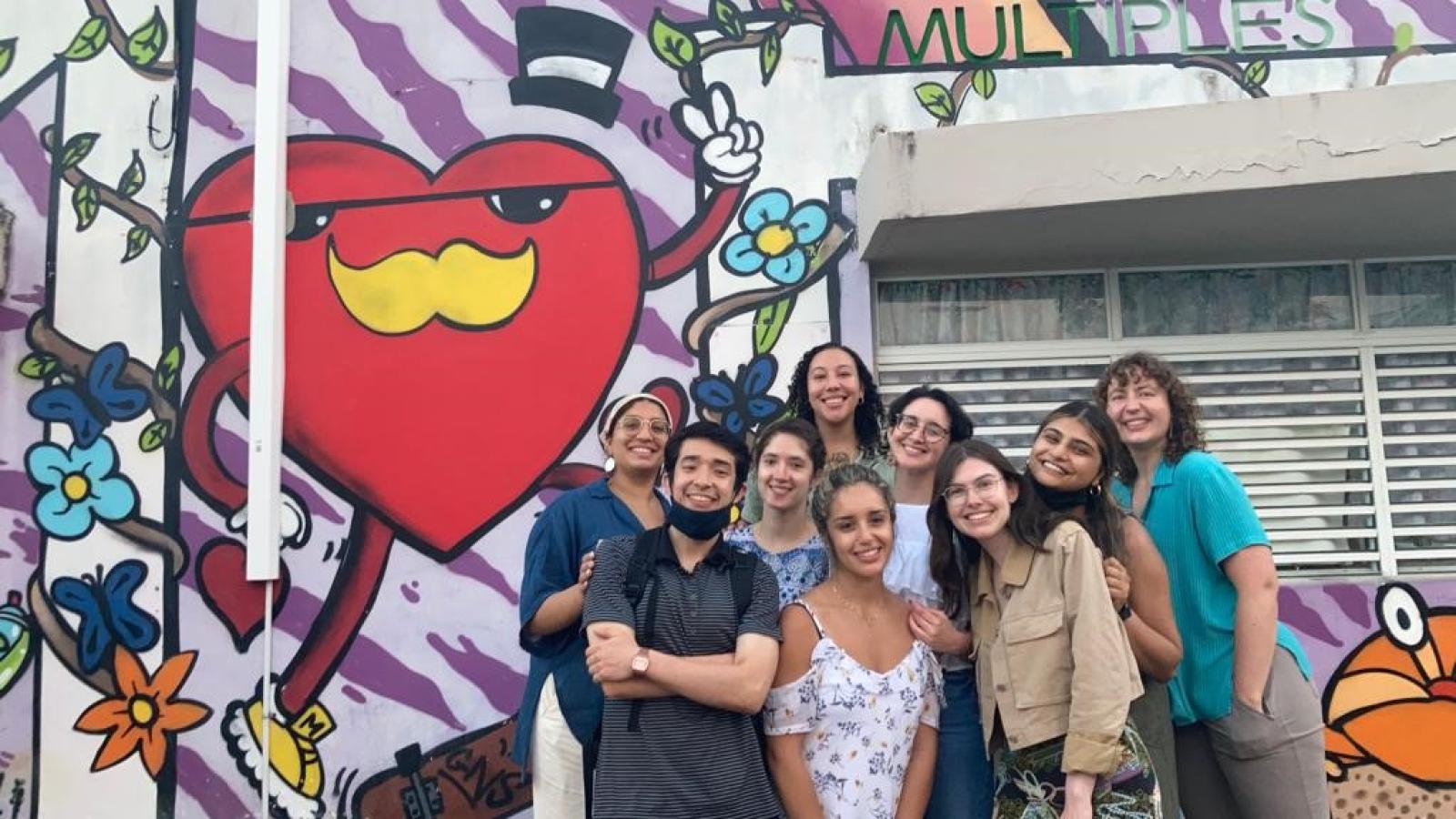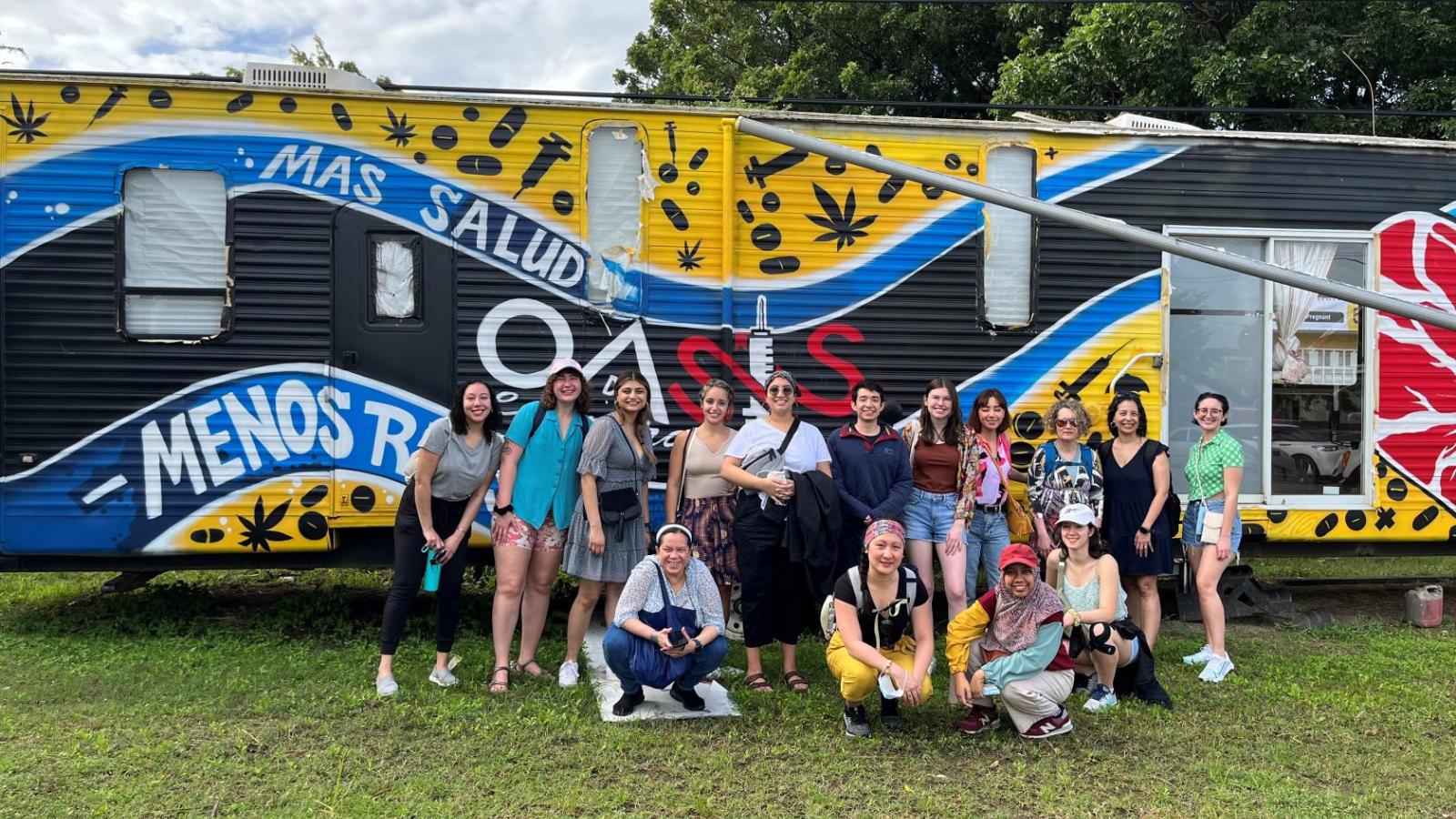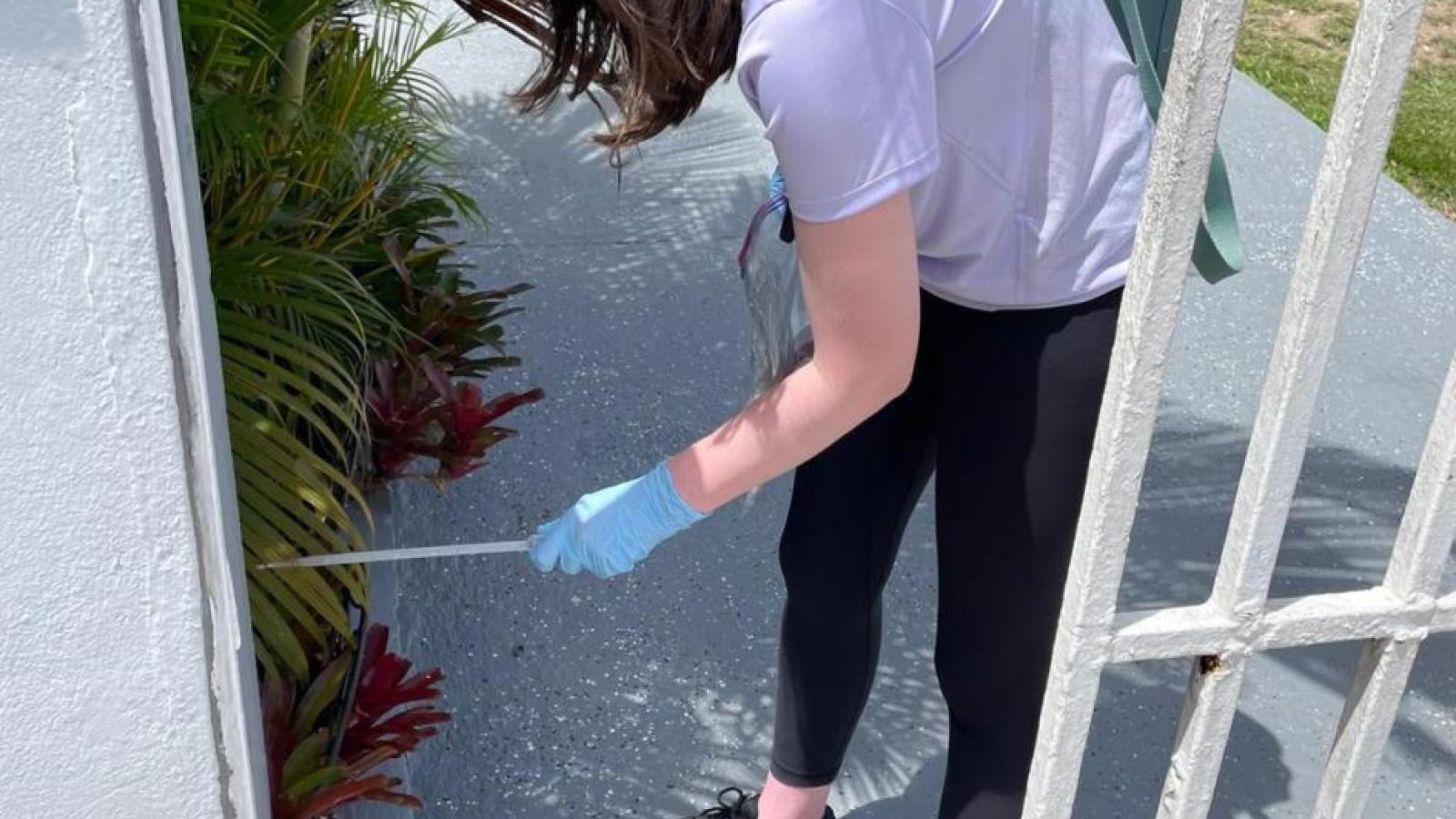The Puerto Rico Fellowship – Alumni Feature
During spring break, after a two-year hiatus caused by the COVID-19 pandemic, a cohort of 15 Columbia University students embarked on Columbia Mailman School of Public Health’s annual, interprofessional, service-learning, and community-participatory research trip to Puerto Rico. There, they contributed to affecting lasting change in the communities most impacted by ongoing natural disasters and public health crises.
The Puerto Rico Fellowship promotes actionable social change in the eight neighborhoods surrounding El Caño Martín Peña of San Juan, Puerto Rico by addressing barriers to the health and wellbeing of Puerto Ricans. Through participation in the PR Fellowship, fellows develop critical thinking skills, gain experience working in interprofessional teams to provide service-learning support, and conduct community-based participatory research.
In alignment with Columbia Mailman School of Public Health’s mission to reduce health disparities, fellows develop projects that are in direct response to the community’s most pressing needs, as identified by community members. With an emphasis on project sustainability and long-term collaboration, fellows dedicate their time to learning about the historical, political, and economic contexts of Puerto Rico that have given rise to health issues and inequities currently faced by their partners.
Students have worked with our partners virtually over the past two years while the COVID-19 pandemic has persisted. Their past projects have focused on the creation of educational materials on COVID-19 and internal programmatic infrastructure, including grant writing and interprofessional team development.
Now, this year, the fellows were able to visit the communities that surround El Caño Martín Peña, a heavily polluted channel that contributes to flooding as well as vector-borne disease and respiratory illness in the local area. Throughout the week, they conducted focus groups with about 20 residents with young children to gather data about their experiences with childhood asthma. They are now analyzing their results and will report the findings to their community partners, Proyecto ENLACE and the Grupo del Liderato de las 8 comunidades (G8).
The fellows also participated in a service-learning activity in partnership with the Program for Recreation, Integration and Empowerment of the Elderly, an organization that works with older adult women to promote mental health. They facilitated discussions, yoga, and meditation with the group. Other notable activities included a tour of the nursing department at la Universidad Sagrado Corazón, an afternoon sight-seeing in Old San Juan, and a service-learning trip to Ponce, organized by the CDC’s Division of Vector-Borne Diseases. Specifically, the fellows collaborated with their Communities Organized to Prevent Arboviruses (COPA) Project in partnership with the Puerto Rico Vector Control Unit. All of these experiences contributed to furthering the fellows’ understanding of Puerto Rico and its rich history and social context.
With your support, Columbia Mailman students can continue fostering important partnerships in Puerto Rico and promote equitable community health engagement. Your gift will help to fund:
- Student travel to, and lodging in, Puerto Rico to participate in these collaborative, community-based service learning and research activities;
- The integration of interprofessional education competencies and skills in a practice-based experience;
- And the creation of project deliverables for important stakeholders and community members, including final reports, presentations, and educational materials.
Your support allows students like me to continue collaborating with our Puerto Rican community partners year after year. The Puerto Rico Fellowship has taught me the value of self-reflection in the field of global health and prepared me to engage in meaningful community partnerships as I embark on my future career. This fellowship has made a great impact on me, and I am so appreciative to have had this experience. On behalf of this year’s cohort, I would like to extend my thanks to everyone who has contributed to the fellowship and made the experience possible.
Claudia Michaels, MPH ’23



